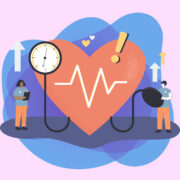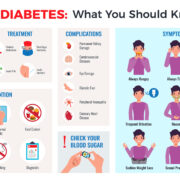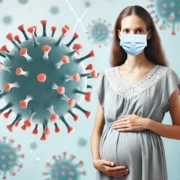Pregnancy is a time of significant change and heightened emotions, and the added concern of contracting COVID-19 can amplify stress. Understanding the risks, symptoms, and necessary precautions can help you manage your health and your baby’s well-being during these challenging times.
What Happens if You’re Pregnant and Get COVID-19?

Pregnant individuals who contract COVID-19 generally face a low risk of severe illness. However, studies indicate a higher likelihood of severe disease from COVID-19 compared to those who are not pregnant. Despite advances in medical knowledge and treatment since the pandemic began, a positive COVID-19 test during pregnancy can be stressful. Remember that healthcare providers now better understand the virus and how to manage it effectively.
It’s crucial to contact your pregnancy care provider if you experience symptoms of COVID-19 or receive a positive test result. They can guide you in managing symptoms and deciding if emergency care is necessary.
Risks of Being Pregnant with COVID-19
Pregnancy brings changes to the respiratory and immune systems, increasing the risk of severe complications from COVID-19. Severe complications might require hospitalization, intensive care, or ventilator support.
During pregnancy, the immune system protects both the mother and the fetus, making pregnant individuals more susceptible to infections. Respiratory changes, such as the diaphragm shifting upward and increased oxygen needs, can lead to shortness of breath even without COVID-19.
Most pregnant individuals with COVID-19 experience mild symptoms and have a low risk of severe complications. However, if moderate or severe COVID-19 occurs during pregnancy, the risk of complications such as preeclampsia, blood clotting disorders, heavy bleeding after birth, preterm birth, low birth weight, fetal growth restriction, and rare instances of fetal brain damage or respiratory issues may increase.
Complications tend to be highest in the third trimester. Nonetheless, the overall chance of severe complications during pregnancy due to COVID-19 remains low, less than 1%.
Can COVID Cross the Placenta?
The risk of transmitting COVID-19 to the fetus is low. Although the virus can cross the placenta, it is rare. Factors like the gestational age and the severity of the infection may influence transmission.
Studies from the National Institutes of Health (NIH) show that only a few babies are born with COVID-19, and it is unclear whether they contracted the virus before, during, or just after birth. Most newborns with COVID-19 have mild symptoms and recover fully.
Who is More at Risk for COVID While Pregnant?
Pregnant individuals at higher risk for severe illness due to COVID-19 include those with medical conditions such as diabetes, high blood pressure, or heart disease, those with overweight or obesity, and those with limited or no access to medical care.
Symptoms and Causes
Are the Symptoms of COVID-19 the Same During Pregnancy?
Yes, COVID-19 symptoms during pregnancy are the same as in the general population. They often start as mild and flu-like but can become severe. Mild symptoms include fever, chills, cough, nasal congestion, headache, body ache, fatigue, and loss of taste and smell. Severe symptoms requiring emergency medical attention include trouble breathing, chest pain or pressure, confusion, and an inability to stay awake.
What Causes COVID-19?
The SARS-CoV-2 virus causes COVID-19, a member of the coronavirus family that leads to respiratory illness in humans. Infection occurs through respiratory droplets from an infected person or by touching contaminated surfaces and then touching the nose, eyes, or mouth.
Diagnosis and Tests
How is COVID Diagnosed During Pregnancy?
The diagnosis process for COVID-19 during pregnancy is the same as for non-pregnant individuals. Healthcare providers diagnose based on symptoms and exposure likelihood, with laboratory tests, such as nasal swabs, providing definitive results.
What Should I Do if I Test Positive for COVID While Pregnant?
If you test positive for COVID-19 at home, contact your healthcare provider. They will advise on managing symptoms and may confirm the diagnosis with a laboratory test.
Management and Treatment
What Can I Do to Treat COVID-19 if I’m Pregnant?
Treatment for COVID-19 during pregnancy depends on the severity of symptoms. For mild symptoms, your provider may recommend resting, drinking extra fluids, taking acetaminophen (avoiding ibuprofen), using a humidifier, and taking medications to reduce coughing. Severe cases may require hospitalization and advanced treatments such as antiviral medications or monoclonal antibody therapy.
Ask your provider about using a blood pressure monitor or pulse oximeter to monitor your oxygen levels at home and for advice on which symptoms require immediate medical attention.
Prevention
What Can I Do to Avoid Getting COVID While Pregnant?
Preventive measures for COVID-19 during pregnancy include getting vaccinated, washing hands frequently, avoiding contact with sick people, maintaining distance at crowded events, avoiding touching the face, disinfecting high-touch surfaces, and attending prenatal appointments.
Getting vaccinated is the most effective way to protect against COVID-19. Vaccination is safe during pregnancy and can prevent severe illness.
Outlook / Prognosis
Should I Be Worried About COVID-19 During Pregnancy?
While concerns about COVID-19 during pregnancy are natural, most pregnant individuals experience mild symptoms and fully recover. Discuss any worries with your healthcare provider and learn which severe symptoms to watch out for.
Can COVID During Pregnancy Cause Birth Defects?
Ongoing research suggests that birth defects due to COVID-19 are rare. Most studies show that the virus does not significantly increase the risk of congenital disorders.
Living With COVID-19 During Pregnancy
How Do I Take Care of Myself if I Have COVID While Pregnant?
Stay in touch with your healthcare provider and follow their advice. Ensure you get plenty of rest, stay hydrated, and isolate yourself if you live with others until you recover.
When Should I See My Healthcare Provider?
Contact your healthcare provider if your symptoms do not improve after several days. Most cases are mild, and symptoms resolve with rest and time.
When Should I Go to the ER?
Seek emergency care if you experience severe fever, diarrhoea, vomiting, trouble breathing, chest pain, disorientation, blue-tinged lips, or confusion.
What Questions Should I Ask My Healthcare Provider?
When diagnosed with COVID-19 during pregnancy, you may have several questions, including:
- Is my baby at risk for COVID-19?
- What symptoms are considered severe?
- What symptoms require a visit to the ER?
- What are the potential complications of having COVID-19 during pregnancy?
- Do I need to quarantine?
- Will my birth plan be affected by having COVID-19?
Being pregnant with COVID-19 can be overwhelming, but studies show that most pregnant individuals experience mild symptoms and recover fully. Although the risk of complications is higher, the chances of the baby being born sick or having lasting effects are very low. Trust that your healthcare team will provide the best care possible, and focus on taking care of yourself.
DiseaseCorner
FAQs
Is my baby at risk if I have COVID-19 while pregnant? The risk of transmitting COVID-19 to your baby is low. Most newborns recover fully if they contract the virus.
What symptoms of COVID-19 are severe during pregnancy? Severe symptoms include trouble breathing, chest pain, confusion, and inability to stay awake.
Can COVID-19 cause birth defects? Birth defects due to COVID-19 are rare. Most studies do not show a significant increase in congenital disorders.
How should I manage mild COVID-19 symptoms during pregnancy? Rest, drink extra fluids, and take acetaminophen for pain relief. Avoid ibuprofen and stay in touch with your healthcare provider.
Should I get the COVID-19 vaccine while pregnant? Yes, vaccination is safe and effective during pregnancy and helps prevent severe illness.
What should I do if my COVID-19 symptoms worsen during pregnancy? Contact your healthcare provider immediately if symptoms worsen or if you experience severe symptoms.





